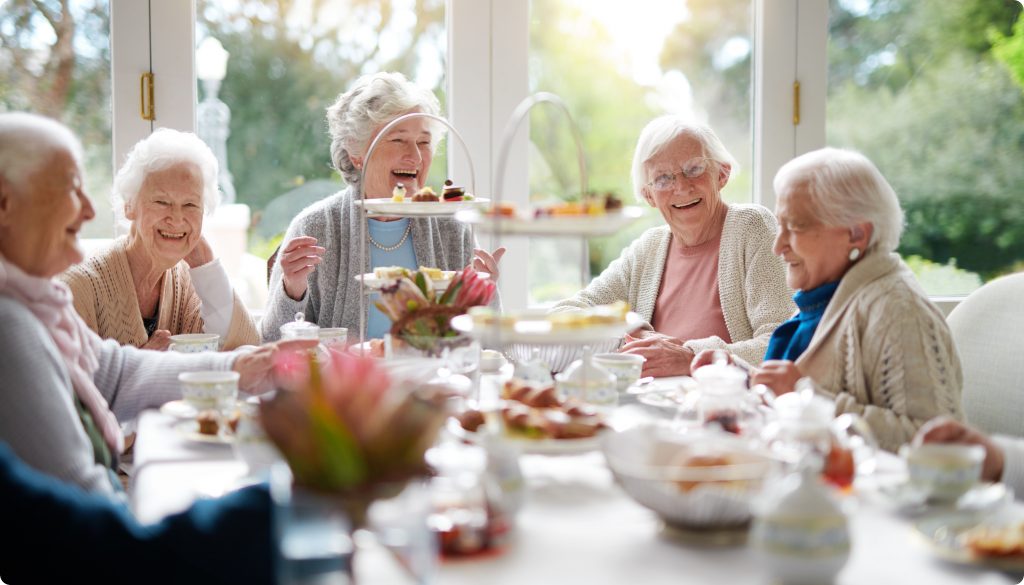Beyond Nutrition: The Multiple Benefits of Dining for Seniors
May 2024

For adults living in senior communities, the value of daily mealtimes goes beyond nourishment from healthy ingredients. While supporting seniors’ healthy diets is vital, the dining experience itself plays a key role in elevating quality of life in even more ways.
The Social Anchor
Facilities that offer restaurant-style dining not only give residents more variety, but also provide built-in opportunities for residents to socialize. Connecting with different individuals is important for seniors’ cognition, giving them a sense of community and maintaining socialization skills while helping to break up the routine of their day. Some facilities also offer healthy and unique snacks throughout the day, which not only acts as a nutritious supplement to their diets, but also gives residents more reasons to leave their rooms or apartments and interact with others.
The Flavor-Memory Connection
Smell and taste have the powerful ability to retrieve fond memories, even for seniors struggling with this on a day-to-day basis. Dan Mesches, CEO of Sprinkles Cupcakes told The Food Institute, “In times of change and uncertainty, human nature takes us back to the things that make us feel safe and comfortable. Food especially has the power to do this.” Smelling and tasting a familiar food can
transport these diners back in time, helping them recall fond memories that can boost contentment. Since turkey is tied to feelings of nostalgia and holiday meals for many, it can be a great option to incorporate on senior living menus.
The Hands-On Benefit
Aging adults aren’t always given the opportunity to learn new skills, especially when they live in senior communities. Cooking or helping to prep their meals requires focus, dexterity and coordination that can reawaken residents’ physical and cognitive abilities. While chopping ingredients or using utensils to eat, residents are also interacting with smells, textures, colors and flavors that ignite the senses and, again, help stir feelings of nostalgia. Repetition can further help improve these skills and evoke powerful memories, contributing to residents’ overall health and happiness in their golden years.
Serving appetizing meals is just one important aspect of the dining experience for seniors. By giving them more opportunities to engage directly with the cooking process or with each other, operators can help connect seniors with the best versions of themselves. How would you engage your residents at mealtime? Let us know on our Facebook or LinkedIn pages, and visit our Resource Center for more tips and trends.
Sources:
https://www.eastwoodseniorliving.com/eastwood-blog/nostalgia-in-the-kitchen
https://foodinstitute.com/consumerinsights/experts-top-3-flavor-trends-to-watch-in-2023/
https://www.tlchomecare.com/what-seniors-can-gain-from-enrolling-in-cooking-class/

























